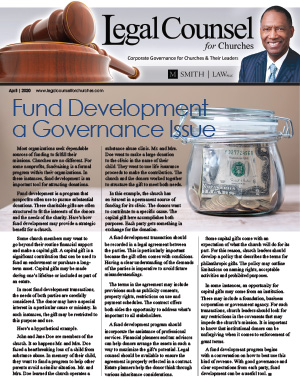Some churches enter into contracts with outside vendors for their technology needs. Vendors provide valuable services to help church operations run smoothly. Church leaders should consider how to unwind a technology contract before entering into a new arrangement.
Technology vendors provide a variety of services for churches. In some instances, the service supplier has custody of church records and files. This means the church information is stored on the vendor’s computers. When the agreement ends, the disposal or handling of these records will become an important matter.
The kinds of arrangements that may include a vendor having possession of church files can vary. The services include membership data base management, payroll services and accounting/bookkeeping records. The benefits of allowing a vendor to house church records could include less maintenance costs, access to the latest software version and better data security.
No contract lasts forever. As a result, churches should ponder what happens to their records when the arrangement terminates. The church may want assurance that it will have access to its important data. Depending on the circumstances of the termination, church files could be inaccessible.
Negotiating the post-termination process in a technology contract is a vital issue. Church leaders should anticipate a day will come when the vendor and the church will part ways. An important consideration in a termination is the deconversion fees and terms.
A deconversion fee is the cost associated with transferring the church files to a new vendor. The new vendor may need the assistance of the previous provider to complete the transfer. The deconversion process often includes validating, cleanup, testing and auditing the data for transfer.
The cost of deconversion can give church leaders sticker shock. The outgoing vendor might not be inclined to be overly cooperative. At this point, the church may have lost its leverage to haggle over fees. Having such expectations in advance can help inform the church on what terms should be included in the agreement.
Some vendors may be hesitant to put a price tag on a deconversion process in advance. To be fair, the provider may not know what could be required in a conversion to every vendor. Nonetheless, an experienced vendor has likely performed a deconversion and generally knows what to expect.
Ownership of church data is a crucial issue to be explored before the deconversion discussion. If church leaders are not careful, a technology contract could assign the property rights of the information to the vendor. If this happens, the church may not have a right to its data. Under dire circumstances, a vendor could charge an extra price for a church to gain possession of its own information.
Church leaders should carefully consider the costs of entering into a technology agreement with a new vendor. Just as important, the church should ensure the contract provides sufficient protections when the deal comes to an end.

